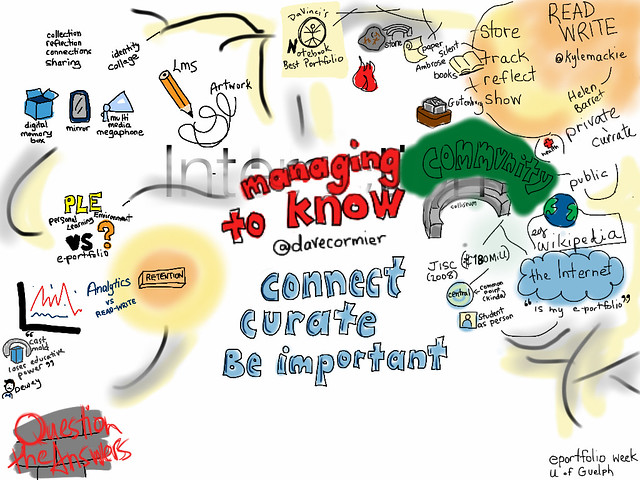I’ve been interested in the potential of running a massive open online course for basic skills for a while now. Most of the open courses that we’ve run so far have been geared towards experienced learners. While there does not seem to be any correlation between ‘web experience’ and success, I feel pretty comfortable in saying that there is a fair amount of correlation between ‘learning experience’ and success. The open courses are less structured than a formal course, and therefore take a bit of getting used to. (don’t know what a mooc is? This post, and particularly the first video should help)
Overview of the MOOC for basic skills plan
Free online course teaching basic skills for success at university
UPEI has funded a 30 month project exploring the possibilities of running Massive Open Online Courses to help students prepare themselves for university the year before the arrive. The course is not targeted for our university specifically, but rather at the university experience anywhere they may experience it. It just so happens that there is a course here that has been running for almost thirty years helping students with the skills they need for success – we’re just trying to bring that to a new format. The hope is that in the fall of 2012, when we offer the second version of the course, that students would be able to take the course for free, and then, if they wish to, collect a portfolio of their work and PLAR for credit.
This year, we’ll be teaching a shortened non-credit course. We’re thinking we’ll do about five weeks. There are a number of questions that we’re going to need address, and we have no idea what kind of demand we will have. What we do know is that we’re hearing back from a number of our contacts in high schools that there still is a fair amount of confusion about what is expected in a university, what one does there, and what skills students should be working on if they are to succeed when they arrive. We’ve started a number of projects in the last few years in an attempt to give students a helping hand (like Jumpstart) and this is really an attempt to take that to the next level.
What will the course look like?
If you’ve participated in one of our open courses before, it will be similar, with a bit more structure built in. We’re currently working with a number of folks to try and stitch together analytics for participants in a course so that they a student can track their own participation and compare it to others. We’ll have two live sessions a week. We’ll have a number of assignments and interesting ways to share those assignments and work with different other groups around it. We’re also creating a number of new resources (like the video above) that will be used in the course and will also be useful as standalone pieces. In five weeks, if students commit to the process, they’ll have a good sense of what they can work on before they start school the following September.
How you can help
I’d really like to make all the work we do on the project as useful to as many people as possible. We’re committing to making at least 4 more videos like “The Syllabus” that will address simple issues that students need to know about.
Send suggestions
We’re also hoping to gather together as many resources as we possibly can to apply to this issue. We’ll collect everything you send us, and find a nice way of organizing them for everyone to use. Tag them #obs11 and we’ll get them. Or you can always send them to me in the comment stream or anywhere else.
Tag basic skills (in the succeed at the university sense) resources
We’d also love to have people join the team… but it’s a bit early for that yet. This is a bit weird for me, in six years of writing this blog, this is the first time I’ve ever written something from work. Ping me on twitter if you’re interested in becoming more involved, or just leave an email here.

 ). The talk (slides below) was an attempt to set a context for the idea of creating a portfolio. It starts talking about the idea of cave paintings as community knowledge, and then the iliad (represented by the colosseum from troy) and how we used to keep knowledge in the community memory. The change in the technology, first the book, and then the technology… and what that means. What opportunities does the ‘e’ provide?
). The talk (slides below) was an attempt to set a context for the idea of creating a portfolio. It starts talking about the idea of cave paintings as community knowledge, and then the iliad (represented by the colosseum from troy) and how we used to keep knowledge in the community memory. The change in the technology, first the book, and then the technology… and what that means. What opportunities does the ‘e’ provide?